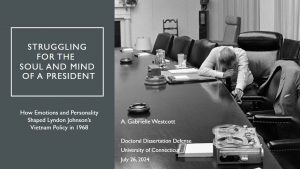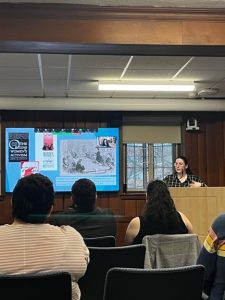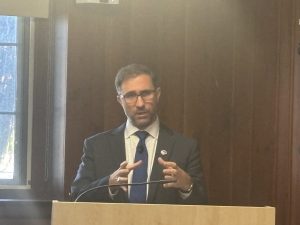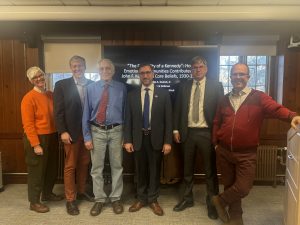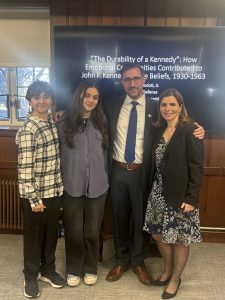On April 2nd, David Evans successfully defended his dissertation, “Hunger for Rights: The Human Right to Food in the Post-War Era”.
From the abstract:
In 1948, the Universal Declaration of Human Rights proclaimed a new era for international law and the expectation of human dignity, and with it the human right to adequate food. This dissertation maps the formulation and evolution of the idea of the right to food. It examines the ways political and religious leaders, internationalists, activists, humanitarians, and scholars imagined, debated, and worked to realize this human right from the 1930s to the 1980s. In its initial formulation, United Nations leaders envisioned the right to food’s realization as the end goal for economic development policy directed at the less developed world. Starting in the 1970s the right to food evolved and different groups embraced it as a framework for addressing global hunger in ways that best matched their political and economic agendas. Political conservatives in the United States rejected human rights policies that required state intervention and instead argued that the right to food would be realized through the economic prosperity and food security generated by free trade. Other advocates operating within the United Nations, along with various religious and secular non-government organizations and scholars, envisioned the right to food as a means to address global inequities and to highlight the political and economic injustices that led to food insecurity. I argue that the right to food evolved from its inception as a component of a broadly understood right to an adequate standard of living, to a fully articulated and fundamental human right that challenged the assumptions and structures of the world economic and political order from which it arose.
Congratulations to David Evans on this impressive achievement!


